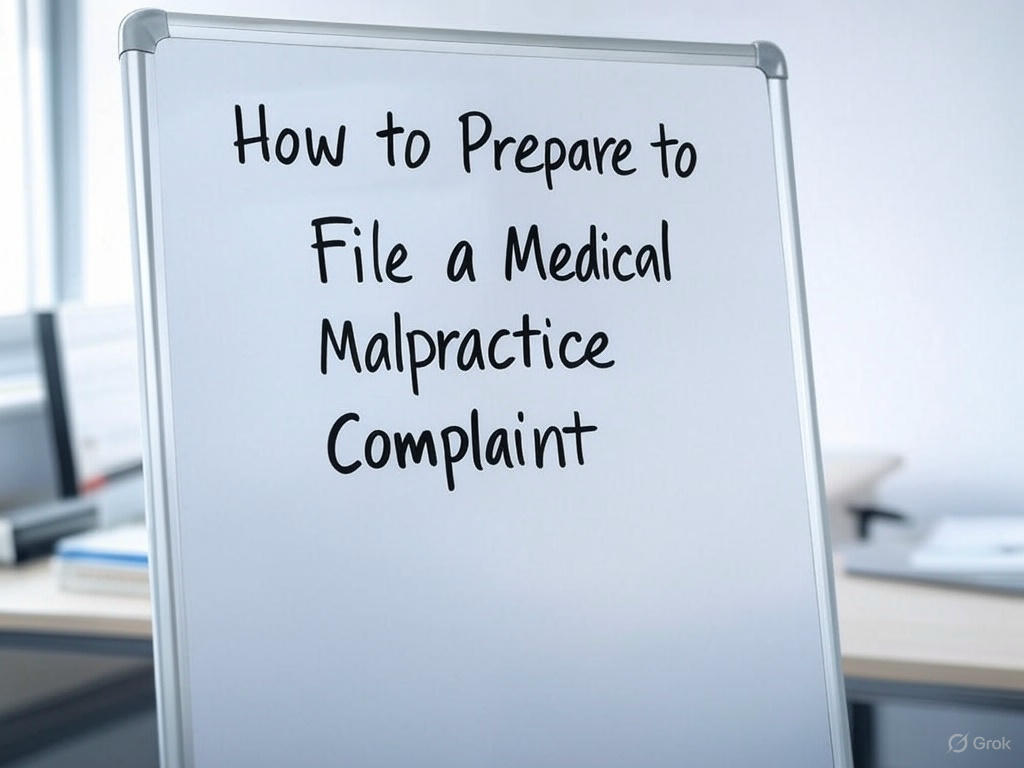How to Get Ready for a Medical Malpractice Claim
You’ve likely had a negative experience with a doctor or a medical professional in the past. If you’re like most people, this negative experience or series of negative experiences was relatively minor, leaving you uninjured and able to continue on with the rest of your life.
But for some people, this negative experience is not only detrimental, but life changing. If a doctor or a nurse makes a significant enough mistake, it can lead to worse symptoms, greater injuries, and a sequence of similar consequences.
Fortunately, the law offers a remedy for people who have experienced negligent conduct at the hands of a medical professional. But how exactly do medical malpractice cases work? And how can you prepare to file a complaint?
What Is a Medical Malpractice Complaint?
Medical malpractice is a term in law referring to negligent medical and healthcare practices that lead to harm in a patient. Essentially, if a doctor or a similar medical provider undertakes an action or omits an action in an unreasonable way that results in injury, you can sue them for damages related to that injury.
For example, say your doctor fails to diagnose you accurately, and this misdiagnosis results in further harm. If your doctor should have reasonably made an accurate diagnosis, you can sue them for any damages resulting from their activity.
A complaint is simply the first step of a lawsuit. You’ll file a complaint, the defendant will file an answer, and proceedings can begin. The case can be resolved in any number of ways at any number of steps in the process, and if you and the defendant failed to make a mutual agreement, the case will go to trial.
Talking to Your Attorney
As soon as possible after you discover your injury, you should talk to a medical malpractice attorney. Your attorney is going to have an abundance of experience in this area, and they’ll be in a great position to advise you on how to move forward strategically. Together, you and your attorney can gather evidence, build the case, and gradually move forward with the process.
Preparing for a Medical Malpractice Complaint
These are some of the most important ways for you to prepare to file a medical malpractice complaint:
· Follow your lawyer’s advice. Unless you have a background in law, you should trust and follow your lawyer’s advice to the letter. Your lawyer has your best interests at heart, and they stand to materially benefit alongside you. Given their knowledge and experience, you should defer to them when making important decisions related to your medical malpractice claim.
· Keep your motives and actions secret. Unless advised otherwise, you should generally keep your motives and actions a secret. Under no circumstances should you inform your doctor that you plan to sue them, and you should generally keep this matter quiet until it’s public. You don’t want to reveal any information unnecessarily or give the opposing side more time to prepare.
· Get a second opinion. It’s common, and sometimes encouraged for patients to seek second opinions. If you believe you’ve been the victim of medical malpractice, it’s especially important to get that second opinion. Only another medical professional can fully evaluate the circumstances of your injury and determine whether the first medical professional committed an act of negligence leading to that injury. Your lawyer may also advise you to hire an expert witness, who can provide testimony as to why this action or omission was negligent.
· Gather as much evidence as possible. Your complaint is going to be much more likely to succeed if you have a robust body of evidence in favor of your claim. Accordingly, you and your lawyer should gather as much evidence as possible with respect to your symptoms, your injury, and the actions or omissions by your medical providers.
· Keep a journal of your symptoms and experiences. It’s also a good idea to keep a journal of your symptoms and experiences. This will help keep track of the harm you suffered and your journey to recovery.
· Consider your strategic options. Depending on the circumstances of your case, you’ll probably have several strategic options moving forward. Review those options carefully and make the decision that’s most in line with your priorities.
· Remain patient. Medical malpractice cases can take a long time to resolve. It might take years to settle, and even longer if the case goes to trial. Try to remain patient in the meantime.
Being a victim of medical malpractice can be devastating, and filing a medical malpractice complaint can be stressful and challenging in other ways. However, with good legal representation and a bit of patience, you can fight for what you’re owed and emerge unscathed on the other side.





